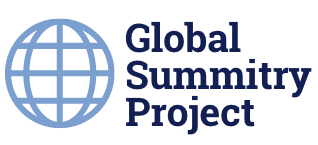
Tahreem Fatima
Tahreem Fatima is an emerging journalist with a background in political science and an interest in international relationships and the new world order. Through her lived experiences in Pakistan, the Middle East and Canada she has developed a passion for telling stories that explore race, religion, socio-economic gaps, gender or sexual orientation. Tahreem is a student in the University of Toronto / Centennial College joint journalism program and contributed to the Global Summitry Project as part of an experiential learning opportunity in 2021.
Former Prime Minister Paul Martin is optimistic about the role of indigenous youth in the future but says there is much work still to do on the indigenous file.
Although 82 and retired from politics, Martin continues to play a significant role designed to provide indigenous people with opportunities and resources to succeed.
“I created a foundation when I stepped down from government. The purpose of the (foundation) is to work with Canada’s indigenous people in terms of the various matters that they face, primarily education but also, economic issues with the indigenous people.”
Martin played various political roles: he was a member of Parliament for 20 years, finance minister for a decade and was the 21st prime minister of Canada from 2003- 2006. After retiring from a full political career spread over nearly three decades, he is now busy with his foundation, Martin Family Initiative. It is a charity aimed at improving education, health and well-being outcomes for Indigenous children and youth in Canada.
Interviewed by Tahreem Fatima
Tahreem Fatima is an emerging journalist with a background in political science and an interest in international relationships and the new world order. Through her lived experiences in Pakistan, the Middle East and Canada she has developed a passion for telling stories that explore race, religion, socio-economic gaps, gender or sexual orientation. Tahreem is a student in the University of Toronto / Centennial College joint journalism program and contributed to the Global Summitry Project as part of an experiential learning opportunity in 2021.
Looking back, Martin points to the Kelowna Accord as his most significant achievement as prime minister. The accord was a series of agreements between the Government of Canada, first ministers of the provinces, territorial leaders, and the leaders of five national Aboriginal organizations in the country. It was a 10-year plan, with a $5-billion agreement to close the social and economic gap within five years between Indigenous and non-Indigenous Canadians. The purpose of the accord was to improve Aboriginal peoples’ education, employment, and living conditions with government funding and other programs.
“Unfortunately, the government that followed mine (led by Prime Minister Stephen Harper) did not continue with it, but when Prime Minister Justin Trudeau became Prime Minister (he) was very clear that his sympathies were very much with the indigenous people.”
Recent public apologies from the Trudeau government, Martin said, are in tune with the Kelowna accord.
Martin said the Trudeau government’s efforts to work with the Indigenous community and are embarked on the right course, but a lot more needs to be done. Martin said Trudeau has the right people in place to address indigenous issues.
“Dr. Carolyn Bennett was a minister with me and Mark Miller. These are two ministers who understand this (Indigenous issues) and are working at it, and so are their department(s).”
Discussing the lack of resources and education in Indigenous communities, the former prime minister acknowledged that Canadian treatment of Indigenous people from the last century or two “has certainly not been something we could be proud of. And I believe that from a moral as well as value basis, we’ve got to make that right.”
He said a lot of work is needed in many areas, but his foundation’s key focus is to provide education and opportunity to the Indigenous communities to thrive.
“Education is one of the most important tools that will allow the First Nations to basically take, hold and be their own success. But it’s also incredibly important economically, for Canada.”
Martin said that indigenous youth are the youngest and fastest-growing population in the aging demographics of Canada. Nearly 1.7 million people identified as Aboriginal in the 2016 census, Statistics Canada says – a 4.9 per cent share of the total population and 42.5 per cent increase since 2006, a growth rate more than four times that of their non-Indigenous counterparts. To make use of such a large number of young people and make them valid and polish their skills more, Canada must provide proper tools and resources.
He said his foundation’s team had developed programs based on the Ontario educational model and incorporated material from the U.S.’s academic curriculum, giving insight into the Martin Family Initiative. They have also gathered support from Indigenous communities and their business leaders.
The focus, he said, is on financial literacy, entrepreneurship and planning and working in a business.
“We have created a very successful course, and we’re now in 45 schools across the country,” Martin said. “Not all of the schools are fully Indigenous. Some of them are public high schools, but we’ve created an Indigenous business course so that young people who want to know about business can take a business course and decide that’s where they want to go.”
Martin said the other program, which is a huge success, focuses on teaching literacy, reading, and writing.
“The ability to read and write at the end of Grade 3 is 13 per cent in indigenous students compared to 70 per cent of the non-Indigenous students.”
With the help of an Indigenous teacher, Martin said, they have been able to form the course and tried that course as a pilot program in The Chippewas of Kettle and Stony Point, Ont. Martin said that the success rate of the pilot program was tremendous. In five years, 81 per cent of students were able to read and write.
“It’s now in 18 schools across the country, and those schools are not just implementing, but they’re teaching Indigenous teachers how to teach. Literacy in both the native language and in English or French, it’s another huge success,” said Martin.
The newest project of the Martin Family Initiative is home visitation.
“Home visitor is an Indigenous woman in a community who has raised her children successfully, and now we had worked on a program that would enable them, not teaching them, how to raise children because they know how to… teach young mothers how to raise their children,” said Martin.
The pilot program was done in the Ermineskin community located south of Edmonton, Alta.. It was very successful and now is being implemented in many communities as far as the Yukon. He said the reason for their success is that the foundation’s team works with the community and does not make decisions for them. That’s the way Canada’s government should work with them, he said.
“Canada has ignored their culture,” he said.
He said if Canada can understand them and their culture, the country can gain massive success in understanding them (the communities) and working together on the issues we face as a country. He said that’s the aim of his organization to close the gaps between indigenous and Canadian society.
“What we’re doing is we’re really taking this huge body of Indigenous knowledge, and we’re making it work by making it available to the First Nations so that they can use it to turn their situation around.”
He said that his organization is hopeful to see Indigenous youth to their full potential.
“Enormous gains can be achieved if we give indigenous youth a real shot,” he said.
